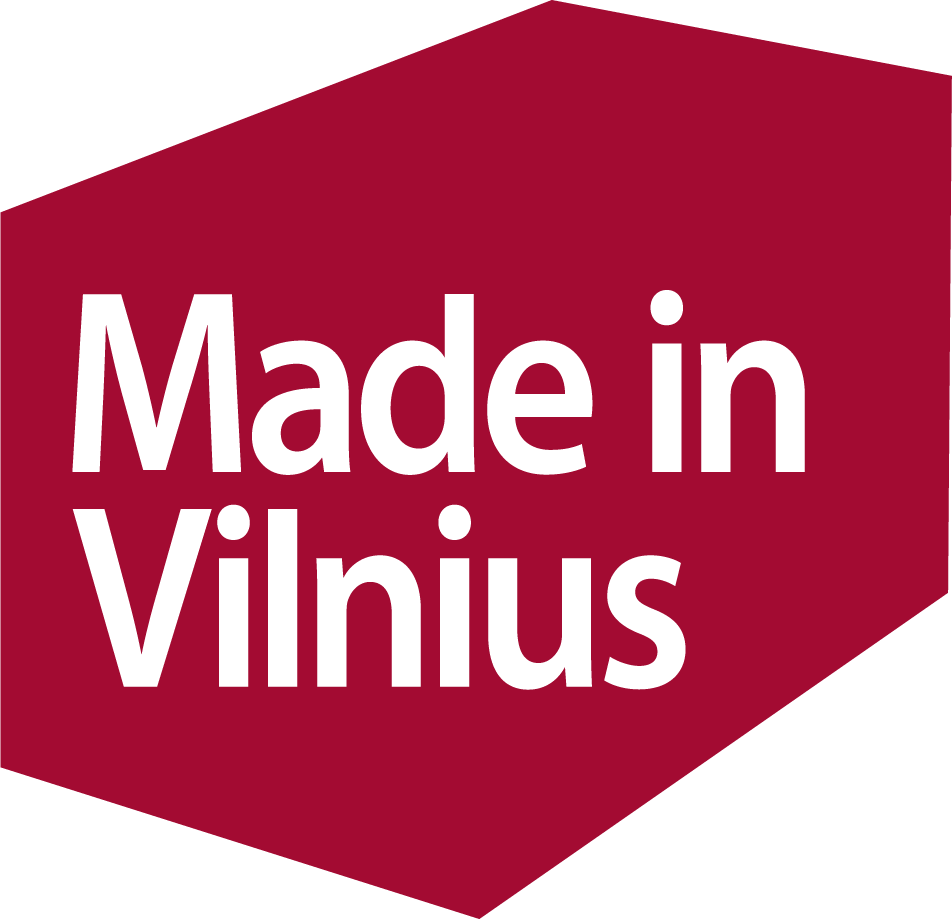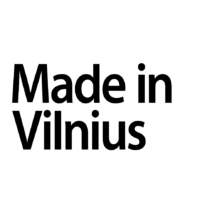The participation of communities in urban development is an important aspect to create sustainable and livable spaces. In this article, we will look at why community participation is an essential component of the spatial planning process and how it can affect the final results.
The first seminar of the project "Sustainable participation of communities in the development and conversion of the city" carried out by the New Vilnius City Community together with the Union of Vilnius Community Organizations (the Ministry of Social Security and Labor of the Republic of Lithuania allocated state budget funds for the project)Spatial planning publicity” reviewed how the participation of communities not only provides important information for the planning process, but also increases the transparency of decision-making. Openness and dialogue with residents not only allows for a multifaceted perspective, but also creates conditions for cooperation with local communities from the very beginning.
Seminar presenters Evaldas Klimas, Mindaugas Pakalnis and Sigitas Rimkevičius, reviewing the publicizing procedures of Territorial Planning, agree that publicizing urban development plans and their projects can promote the empowerment of communities. Giving them the opportunity to participate in the decision-making process can strengthen their sense of dependence on their environment and its future development. During the Soviet era, the opportunity for a citizen to feel part of the community was destroyed. Today's desire is to enable the citizen to naturally take an interest in his environment together with his neighbors. This not only promotes civic participation, but also contributes to the achievement of the Sustainable Development Goals.
Disclosure significantly reduces the risk of conflicts. Communities that are actively involved in spatial planning feel valued and realize that their opinions matter. This reduces the potential for resentment and disagreements that can arise if decisions are made without community involvement.
Also, it is worth noting that the participation of communities can contribute to the search for creative and innovative solutions.
The different experiences and insights that different communities can provide can enrich the planning process and lead to smarter and more effective solutions.
The next seminar "Promotion of project proposals" The speakers were joined by Beatrice Umbrasaitė, Head of Public Involvement Projects of VšĮ "Vilniaus Planas". The purpose of the presentations was to reveal how publicizing project proposals can influence community participation and why this interaction is essential for the development of successful initiatives.
It is important to understand that publicizing the project is not only information dissemination, but also two-way communication between project organizers and communities. This means not only providing information about the project, but also listening to the opinions, needs and wishes of the communities. This model of interaction creates conditions for creating projects that meet the real essence of the communities' needs. In addition, community participation can help identify and resolve potential conflicts. Open dialogue can allow project organizers to understand sensitive topics and involve community members in the decision-making process to avoid potential disputes in the future.
The more information is provided about the project and the more widely this information is distributed, the more people can feel that the project is a part of them. Continuous dialogue with communities provides an opportunity to understand unique local characteristics and specific challenges. This allows project organizers to properly adapt to the needs of communities and create innovative solutions that are accepted with great enthusiasm.
Finally, it is important to emphasize that publicizing project proposals and community participation is not a one-time process, but a continuous collaboration. Regular communication with communities allows project organizers to maintain high levels of trust and ensure that the project meets the changing needs of communities. This not only helps to involve more people in the process, but also provides an opportunity
to create long-term, meaningful relationships between project organizers and communities, which is an essential prerequisite for successful and sustainable project development.
After these seminars, community organizations initiated and organized A round table discussion in the Hall of the Lithuanian Council of the Seimas of the Republic of Lithuania, whose participants were Asta Rokickienė, Head of the Architecture and Innovation Policy Group of the Ministry of the Environment of the Republic of Lithuania, Aistė Gedvilienė, Chairperson of the Environmental Protection Committee of the Seimas of the Republic of Lithuania and its members Kasparas Adomaitis and Romualdas Vaitkus, Algė Staniūnaitė-Tonkich, Head of the Policy Group of the Ministry of the Environment of the Republic of Lithuania, Land and Territorial Planning, Vilnius city municipalities man Architect Laura Kairienė, Head of the Urban Planning Department of the Construction Sector Development Agency, Mindaugas Pakalnis, Deputy Chairman of the Lithuanian Chamber of Architects, Lukas Rekevičius, Evaldas Klimas, attorney at the "WALLESS" Professional Association of Lawyers, UAB "Vilniaus Planas", President of the Lithuanian Real Estate Development Association, Mindaugas Statulevičius, urban planner-architect Sigitas Rimkevičius and representatives of the Union of Community Organizations in Vilnius. You can find the full recording of the discussion on the YouTube channel - Open Seimas https://youtu.be/nSRPzEAXoI8?t=1 After the round table discussion, the conversations did not stop and the interest in why it is still difficult for communities to participate in the publicity of urban development projects, the organizers of the project "Sustainable participation of communities in urban development and conversion" initiated an additional seminar on the topic "Legal ways of defending interests in urban development and conversion processes. Case Studies'. Dr. Evaldas Klimas discussed what must be understood in the legal aspects that are decisive in the processes of urban development and conversion. Planning laws, zoning, land use regulations and other legal norms determine how urban areas can develop. Legislation also protects the rights and interests of the individual and the community. Therefore, it is important that residents are informed about legal provisions and opportunities to defend their rights in the process of urban development.
In many cases, the competence of communities in publicizing is not equivalent to that of the speakers, but this does not exempt them from the responsibility to know. They can seek legal advice to
better understand their rights and responsibilities in the process of urban development. Legal expertise can reveal potential conflicts with plans or call for legal action if there is reason to believe that legal norms will be violated.
It is well understood that community participation can have a direct impact on legal strategies. The active participation of communities can allow the formation of legal arguments and comments that should be taken into account in the preparation of urban development plans or conversion projects. Community representatives, with a proper legal basis, can go to court if they believe that the project violates their rights or environmental regulations.
In addition, it is important to emphasize that legal protection of interests can also be related to ensuring transparency. The openness and publicity of planning processes allows communities to participate more actively and defend their rights. Legal documents, descriptions of planning procedures and other relevant data must be accessible to all, easily found in search engines, as this is the only way to ensure the opportunity for all interested parties to participate.
Community participation and legal advocacy are closely related and can influence urban development. By successfully integrating these aspects, it is possible to develop urban development and conversion plans that are legally sound and meet the needs of the community. It also provides an opportunity to strengthen citizens' trust in public institutions and ensure fairer and more sustainable urban development.
It is undeniable that community participation can have a lasting impact on legal provisions. Active participation can encourage legislation to be changed or updated to take into account the needs and views of communities. This shows that community involvement can become an effective way to support urban development and conversion processes in the legal field.
Beatričė Umbrasaitė said during one of the seminars: "Cities are living organisms that are created by their inhabitants through their lifestyle, connections, and activities. Each urban space has a coded level of local life: pedestrian connections, residents' habits, local problems, strengths, etc. Spatial planning and design should start from uncovering and understanding this level – a dialogue with the local community – and continue to evolve accordingly. In the long run, everyone benefits from a city based on healthy connections."
It is very important to emphasize that in order to successfully implement the principles of spatial planning publicity, it is necessary to create appropriate platforms and processes that encourage active participation of communities. This may include public debates, consultations, workshops or other methods that encourage interaction and dialogue between planners and residents.
All this shows that publicizing spatial planning and community participation in it is not only an ethical principle, but also an effective way to create sustainable and resilient communities and environments. It is an investment in the future that allows us to combine different perspectives and achieve long-term sustainability goals.
New Vilnius city communities together with Union of Community Organizations of Vilnius one of the tasks of the ongoing project "Sustainable participation of communities in urban development and conversion" was to provide residents with knowledge about the legal regulation of territorial planning and construction, the principles of urban planning and architectural quality. Therefore, you can find the recordings and slides of all seminars on FB Vilnius Union of Community Organizations, YouTube channel https://www.youtube.com/@vbosvilnius8140/streams and on the website at https://www.vbos.lt











